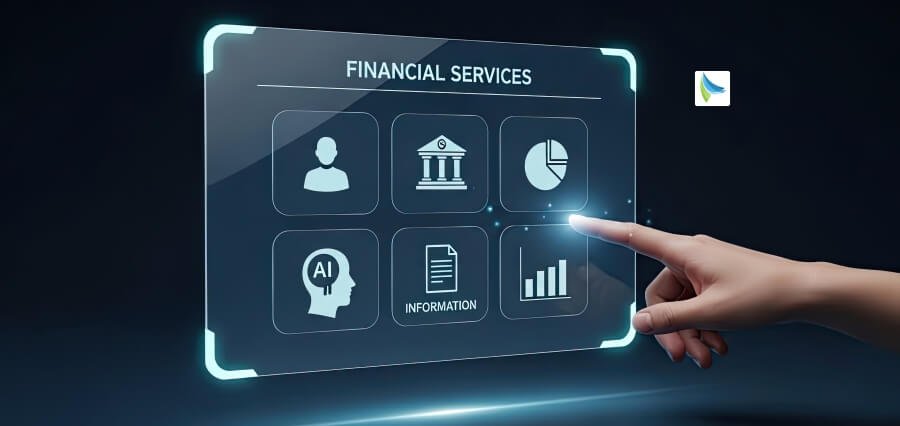Enterprise Artificial Intelligence has matured in a very short span from the experimental fringes to the strategic necessity of today’s organizations. Organizations operating in highly competitive sectors are increasingly leveraging AI to automate, discover real-time insights and imbue intelligence in all their operations. What hitherto was being done through man intensive manual control of long cycles by large operating organizations can now be achieved with much greater accuracy and sensitivity through AI based automation. This is not a matter of digitization but of re-engineering business value creation in the organization. Companies can now shatter traditional constraint of growth on the basis of labor, geography or conventional processes. Enterprise AI development is driven by the growing maturity of sophisticated analytics, natural language processing, smart automation and generative AI. They enable enterprises to predict outcomes, make assets more logical, tailor customer experiences and accelerate decision-making. Digital transformation does not only take place in digitally native organizations but also in industrially born businesses like manufacturing, supply chain, utilities, banking and public sector services.
AI in Operations
And. The power to transform unstructured and once-separated operation data into actionable intelligence is perhaps the most extreme disruption enabled by Enterprise AI. AI systems track vast amounts of enterprise-wide data to spot inefficiencies, forecast risk and suggest action for remediation. In manufacturing, predictive maintenance using AI cuts unplanned downtime and maximizes asset productivity. In supply chain and logistics management, AI-driven planning optimizes inventory balance and forecasting with lower operation overheads. The outcome is the move away from reactive problem-solving to proactive insight-driven operations.
Enterprise AI also calls for reinvention of decision workflows. Decision-makers no longer need to wait for historic dashboards or weekly reporting cycles. Instead, AI software provides dynamic scenario planning to facilitate quicker and better decision-making. Automation raises the bar for efficiency by streamlining trivial stuff. This leaves the employees free for added value tasks like innovation, stakeholder management, and sophisticated exception handling. The use of AI to operations is thus technological advance and organisational cultural transformation that facilitates data driven thinking within the organisation.
Scaling Productivity and Responsiveness
Enterprise AI is less about doing things quicker and more about equipping workers with knowledge. AI copilots and assistants assist workers with information processing, diminished cognitive overload, and undertaking tasks with greater accuracy. Workers, who had to work on multiple systems before, now work AI systems that offer single-poise perspective of information along with decisional guidance. This results in more uniform results and less error, especially during high-stakes work where speed and accuracy must come together. Training cycles overlap also, as personnel use ease-of-use AI software that masks complexity.
AI also makes organizational responsiveness better in adaptive operating models. Companies can quickly re-imagine business process, scale capacity where needed, and tailor interactions as a response to unstable market conditions. Rather than being tied in rigid structures, companies can be agile data-driven networks. Flexibility is then a capability and competitive drive in the shape of an adaptation to uncontrollable events like supply chain interruption, consumer trend or regulation alteration. Organizations that integrate AI early in the enterprise have an empirically supported head start benefit in speed of deployment and capability for innovation.
AI-Led Value Creation
Long-term digital economy success requires more than deploying technology. It involves a process of coordinating business results and possibilities with AI and end scalability. The ones who succeed apply AI on a strategic scale, starting with most operationally relevant use cases and with measurable ROI. They also create governance structures in position that facilitate the utilization of AI, secure data integrity, and compliance with regulations. All of this harmonization enables companies to scale from silo pilots to enterprise transformation.
Operations in the future will be defined by the confluence of AI, cloud infrastructure, digital twins, edge computing and intelligent automation. As these technologies become increasingly interconnected, organizations will possess the ability to model business results before implementation, run sophisticated processes independently and provide hyper-personalized services at scale. Those organisations that make the transition now will be in a position not just to accelerate faster efficiency but to redefine the value they can create for customers. Enterprise AI is no longer a back-office enabling role. It has emerged as a strategic enabler of resilience and long-term competitiveness.
Conclusion
Business AI is transforming building blocks for contemporary organisations. It makes it possible for organisations to transition from manual and siloed, retrograde processes to joined-up, automated and intelligence-driven processes. As businesses keep on digitizing at scale, AI-powered solutions facilitate strategic enablers of business agility, resilience and business performance improvement in every function of the business. The companies embracing Enterprise AI not only improve operational efficiency but also open up new sources of value creation with innovation and better decision-making. Its long-term potential is much greater than infinitesimal incremental cost savings or productivity increase in the labor force. It is a shift in paradigm in how companies compete and develop in an information age. With scalable architecture investments, ethical AI platforms, and a continuous improvement culture, next-generation world-class companies can craft an operating model that can respond in real-time to the marketplace’s needs.
















